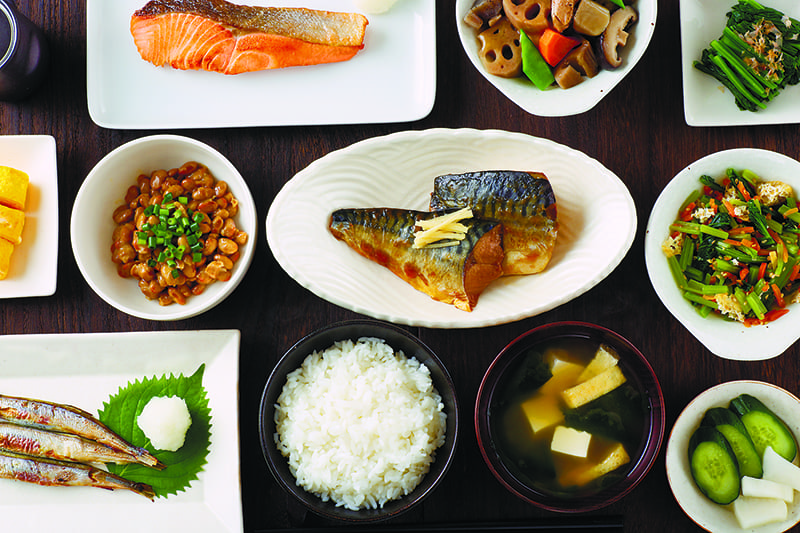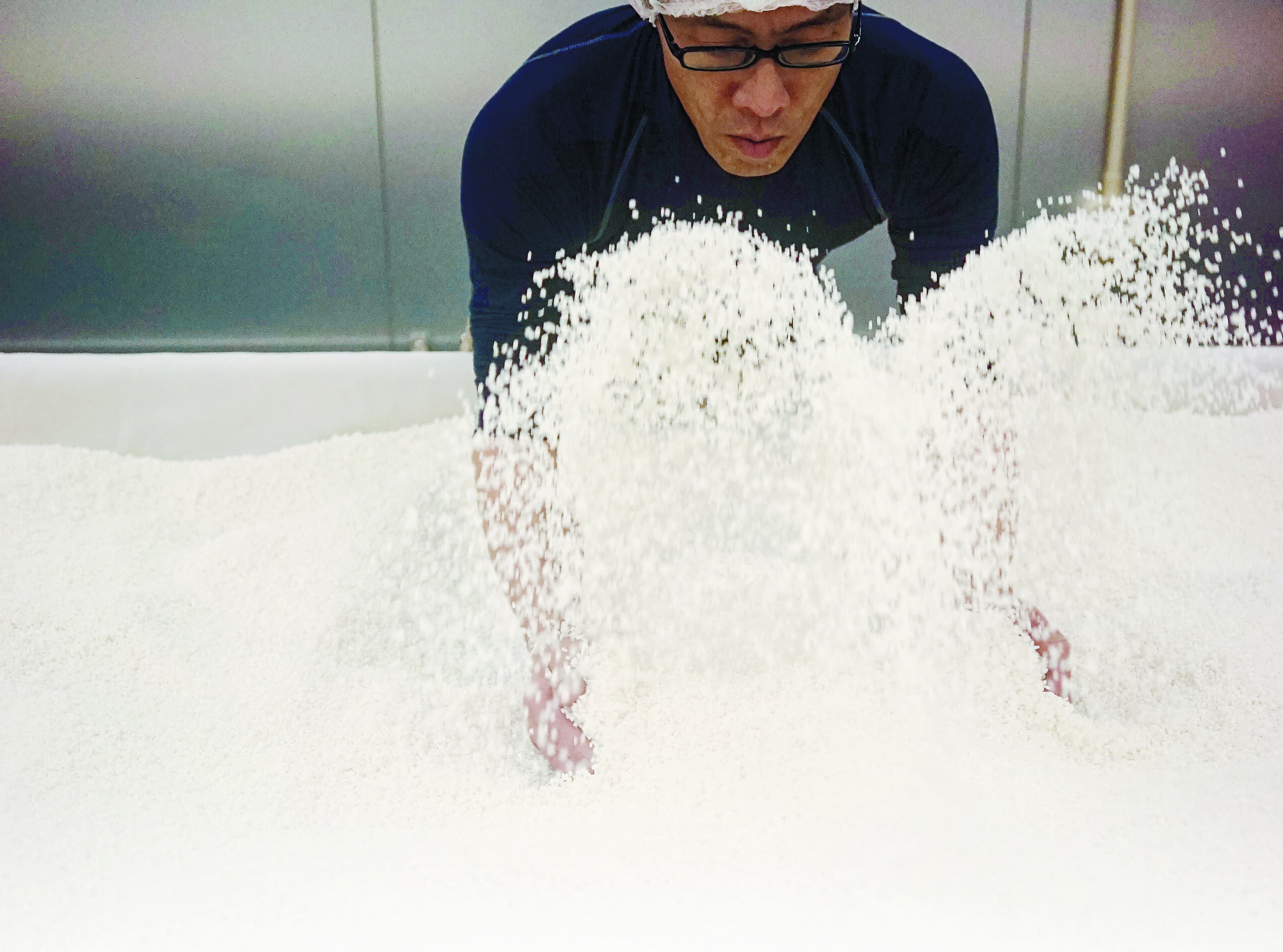December 16, 2021
Savory find leads battle against sodium

PHOTOS: HEALTH, LABOR AND WELFARE MINISTRY
Washoku, Japan’s traditional dietary culture, was added to UNESCO’s Intangible Cultural Heritage list in 2013. Washoku has since grown into an international trend, and extensive research has been conducted into its health benefits.
The National Cancer Center Japan defines washoku as the “Japanese dietary pattern” and uses the eight-item Japanese Diet Index (JDI8), which scores the intake of rice, miso soup, seaweed, pickles, green and yellow vegetables, seafood, green tea and beef/pork, to investigate associations with mortality. Its studies have shown that groups with higher JDI8 scores have a 14% lower overall mortality rate and 11% lower mortality rates for both cardiovascular and heart disease.
The center has also highlighted an inverse association between overall mortality and the intake of widely consumed fermented soy foods.
These studies back the health benefits of washoku, despite some negative aspects, such as high sodium intake. According to the National Health and Nutrition Survey 2019, average daily sodium intake among Japanese is 10.9 grams for males and 9.3 grams for females, whereas the Ministry of Health, Labor and Welfare’s recommendation is 7.5 grams and 6.5 grams.
Umami demystified
Kikunae Ikeda (1864-1936), one of Ajinomoto Co.’s founders, was a pioneer in the study of physical chemistry in Japan who was long concerned with the problems of the traditional Japanese diet. In 1908, he found that the savory flavor of kelp broth comes from the amino acid glutamate. In 1909, he launched a commercially produced glutamate called Aji-no-moto seasoning. His findings led to the discovery of umami, the fifth basic taste, unique from sweet, salty, sour and bitter.
While umami offers health benefits and can be found in many glutamate-rich foods, its purest form is MSG, a key component of Aji-no-moto seasoning. Although MSG has long been misunderstood in Western society, recent scientific findings validate its safety and health benefits. One study shows that MSG has two-thirds less sodium than table salt.
Delicious salt reduction
One of Ajinomoto’s targets is to help extend the healthy life expectancy of 1 billion people by 2030. “As we offer products in over 130 countries, this target is now within reach,” Executive Officer in charge of Sustainability and Communications Chika Morishima said.
To achieve this outcome, Ajinomoto positions “delicious salt reduction” as a key initiative, launching the Smart Salt Project in July 2020 to encourage sodium reduction through the use of umami seasoning products. In this project, trained employees help introduce umami and other seasonings in daily cooking through videos and recipes via online media, raising consumers’ awareness while addressing their concerns about low-sodium products, including taste and usability.
“In countries such as Thailand, Indonesia and Brazil, the sales growth of low-sodium products exceeds that of regular products,” Morishima said.
Acting on washoku boom
Washoku is popular around the world, as evidenced by the explosive growth in restaurants serving this cuisine in recent years.
To turn this trend into a dietary habit that can also deliver health benefits, it will be crucial to promote broader knowledge of washoku, such as the benefits of fermented soy foods. The Tokyo Nutrition for Growth Summit is a valuable opportunity to do this.
With heart disease and strokes taking an estimated 3 million lives per year, the World Health Organization has set the goal of reducing global sodium intake 30% by 2025. As the development of washoku and the major contributions of Japan’s food industry demonstrate, “You are what you eat” is no longer just proverbial advice. It is an essential mindset for those wanting to achieve a healthy lifestyle.
Return to Sustainable Japan Magazine Vol. 7 article list page


















